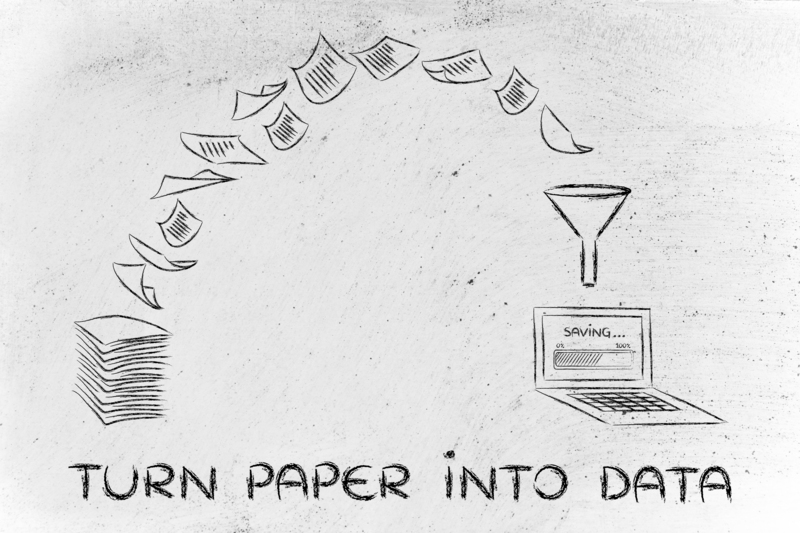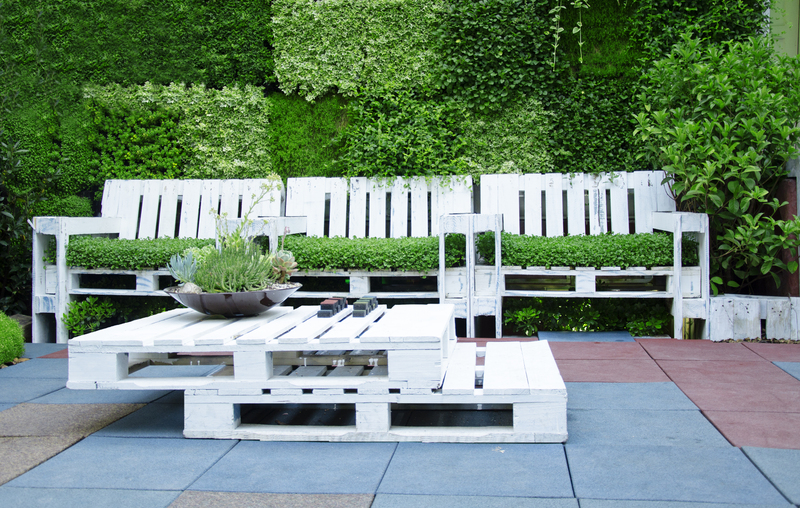Finding Freedom: How Decluttering Leads to Minimalist Living
In the modern world, where consumerism is often at its highest, the idea of letting go and living with less can feel both liberating and daunting. Decluttering not only transforms your space, but also your mindset, inviting calmness and clarity. This comprehensive guide explores how embracing minimalism through decluttering offers not just a cleaner home, but a path to freedom, wellness, and intentional living.
What Is Minimalist Living?
Minimalist living is a lifestyle that emphasizes simplicity, purposeful choices, and freedom from excess. It's not just about having fewer possessions; it's about prioritizing what truly adds value to your life.
- Intentionality -- Every item, activity, or commitment is assessed for its purpose and joy.
- Quality over quantity -- Minimalism encourages investing in fewer, higher quality items or experiences.
- Mindfulness -- Living minimally promotes greater mindfulness in all areas: home, work, and relationships.
The minimalist movement goes beyond aesthetics. It fosters a sense of freedom from the burdens of excess--whether that's clutter in your closet or a crowded digital schedule. But how do you embark on this liberating journey? The answer lies in decluttering.

Understanding Decluttering: The First Step Toward Minimalism
Decluttering is the active process of removing unnecessary belongings and distractions from your life. It's the bridge from chaos to a minimalist lifestyle. Many confuse minimalism with stark emptiness, but at its heart, it's about making space for what truly matters.
Benefits of Decluttering
- Reduced stress: A tidy environment calms the mind and minimizes anxiety.
- More time and energy: Less to manage means more time for meaningful pursuits.
- Financial savings: When you buy less, you save more. Minimalists often make more intentional purchases.
- Improved focus and productivity: An uncluttered space allows for clearer thinking.
- Greater appreciation for what you own: Cherish each item and experience rather than being weighed down by excess.
Decluttering - Where to Begin?
Starting a minimalist journey through decluttering can seem intimidating. The key is to take small, manageable steps and be gentle with yourself. Here are some actionable ways to begin:
1. Set an Intention
Before diving in, reflect on why you want to declutter. Is it for mental well-being? Creating a peaceful home? Preparing for a move? Understanding your unique motivation will guide you in the process and keep you focused.
2. Start Small
Begin with a single drawer, shelf, or corner. When you see quick wins, it encourages further progress. As you build confidence, move on to more complex areas.
3. Use the Four-Box Method
- Keep: Items you use regularly or hold immense value.
- Donate/Sell: Useful items in good condition you no longer need.
- Trash: Damaged or unusable items.
- Relocate: Items that belong elsewhere.
Physically sorting possessions helps to clarify what you cherish and what you can let go of, leading you further toward a minimalist lifestyle.
4. Declutter by Category, Not Location
Instead of addressing room by room, try organizing by category (clothes, books, kitchen gadgets) as recommended by minimalism experts. This method offers a broader perspective and reveals duplicates or excess.
Minimalism Through Decluttering: Beyond the Physical
While physical clutter can overwhelm, so can mental and digital clutter. Minimalism and decluttering are not confined to your belongings, but extend to your mind, digital devices, and even your relationships.
Mental Decluttering
A cluttered mind is filled with distractions, stress, and unnecessary worries. Try journaling, meditation, or guided visualization to clear mental space. Minimalism in thought can foster greater peace and focus.
Digital Decluttering
- Unsubscribe from emails and newsletters that offer little value.
- Organize digital files into logical folders and regularly delete outdated or unused items.
- Limit screen time by curating your social media feeds or setting time restrictions.
Relationship Decluttering
Minimalism also means evaluating relationships and commitments. Keep those that contribute positively to your life, and gently let go of toxic or energy-draining connections.
The Psychology of Decluttering and Minimalist Living
The act of decluttering can feel emotional. We often attach memories, security, or status to items. Moving toward minimalist living means respecting these attachments, but also realizing that our identity and happiness don't depend on possessions.
- Nostalgia: Items may remind us of loved ones or past achievements.
- Guilt: We may feel bad about letting go of expensive or gifted items.
- "Just In Case" Mentality: The fear we might need something someday keeps us holding on.
Acknowledging these feelings--without judgement--enables a healthy and lasting transition to minimalist living.
Practical Steps: Creating Long-Term Minimalism After Decluttering
Decluttering is not a one-time event but a journey toward sustained simplicity. Here's how to maintain a minimalist lifestyle for the long haul:
1. Adopt the "One In, One Out" Rule
For every new purchase, let go of something you already own. This helps keep your space balanced and ensures that only purposeful items remain.
2. Shop Mindfully
- Ask yourself if you really need the item.
- Consider if you already have something that serves the same purpose.
- Wait a day or two before making non-essential purchases to curb impulse buying.
3. Schedule Seasonal Decluttering Sessions
Set reminders to review your belongings every few months. Life and needs change, and so too can your possessions.
4. Focus on Experiences Over Things
Minimalist living encourages you to invest in experiences--like travel, hobbies, or time with loved ones--instead of accumulating goods. Such memories hold more value and don't take up space!
Minimalism at Home: Room-by-Room Decluttering Tips
Let's break down minimalism by room for a practical, thorough transformation:
Minimalist Living Room
- Keep furnishings simple and functional.
- Use storage solutions to maintain tidiness.
- Display only a few cherished decor items.
Streamlined Kitchen
- Eliminate duplicate utensils and gadgets.
- Store food in clear containers to reduce waste.
- Maintain clear counters for a spacious feel.
Serene Bedroom
- Keep surfaces clear for relaxation.
- Store only wearables you love and use.
- Invest in quality, not quantity of bedding and decor.
Functional Workspace
- Remove old documents and excess stationery.
- Keep only current projects at hand.
- Organize cables and tech devices neatly.
How Minimalist Living Frees You - The Deeper Rewards
Decluttering and adopting a minimalist lifestyle bring rewards far beyond a neat home:
- More energy: Less time spent managing stuff leaves more space for passions.
- Increased contentment: Free yourself from the endless pursuit of "more."
- Environmental impact: Consuming less reduces your carbon footprint and waste.
- Enhanced well-being: Clean spaces are proven to promote better sleep, mental clarity, and even improved relationships.
- Financial freedom: Buying only what you need, when you need it, supports savings and reduces debt.
Common Mistakes to Avoid on the Minimalist Journey
Even with the best intentions, there are pitfalls to watch out for as you shift to minimalist living:
- Comparing your process to others: Everyone's path looks different--focus on your own needs and comfort.
- Being too rigid: Minimalism is about freedom, not restriction. Flexibility is key.
- Decluttering too fast: Take your time to avoid regret later.
- Misunderstanding minimalism as "deprivation." It's about choosing carefully, not living without joy.
Minimalism for Families: Getting Everyone On Board
Decluttering with children or partners can be a challenge, but also an opportunity for teaching and bonding. Focus on open communication and shared goals.
- Lead by example--children observe and imitate your behaviors.
- Make decisions together about shared spaces and items.
- Encourage mindful consumption: Discuss the value of quality over quantity with your family.

Getting Started: Helpful Resources for Minimalist Living
Numerous books, blogs, podcasts, and documentaries support the journey from decluttering to minimalism. Some popular resources include:
- "The Life-Changing Magic of Tidying Up" by Marie Kondo
- "Goodbye, Things" by Fumio Sasaki
- The Minimalists (theminimalists.com)
- Podcasts like "The Minimalists Podcast" and "Clear Your Clutter Inside & Out"
Online communities such as minimalist forums or decluttering challenge groups also provide accountability and encouragement.
Conclusion: Embrace Minimalist Living for Lasting Freedom
Decluttering is not just an action--it's an invitation. By regularly letting go, you create physical and emotional room for what matters most. Minimalist living is about intentional choice, peace, and true freedom. Start small, stay mindful, and transform not only your home but your mind and life.
Begin your journey today--discover how decluttering leads to minimalist living, and reclaim your sense of happiness, purpose, and unmatched freedom.
Frequently Asked Questions (FAQs) on Decluttering and Minimalist Living
- How often should I declutter? -- It depends on your lifestyle, but seasonal reviews are helpful for staying on track.
- Is minimalist living right for everyone? -- Minimalism is adaptable to your needs and preferences. Find the level that feels right for you.
- How do I stay motivated? -- Reflect on the benefits and revisit your intentions regularly. Track your progress and celebrate wins!
- What if my family doesn't want to declutter? -- Focus on your personal spaces first. Open communication may encourage others with time.
Minimalist living through decluttering is a personal journey, but one that brings lasting rewards. Let go, simplify, and find your unique path to freedom.